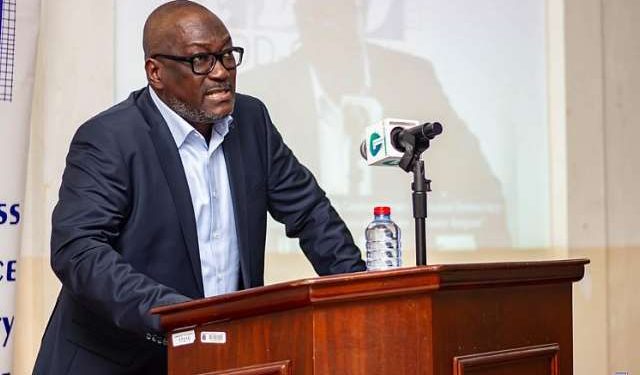The recent suspension of Chief Justice Gertrude Araba Esaaba Sackey Torkornoo has reignited debate over the transparency and integrity of Ghana’s judicial accountability mechanisms.
Professor H. Kwasi Prempeh, Executive Director of the Ghana Centre for Democratic Development (CDD-Ghana), has added his voice to growing calls for reform, pointing to structural weaknesses in Article 146 of the 1992 Constitution.
Speaking in the wake of President John Dramani Mahama’s decision to suspend the Chief Justice following the establishment of a prima facie case based on three separate petitions, Prof. Prempeh said the current process lacks transparency, independence, and public accountability.
“While the Constitution seeks to protect the sanctity of the Judiciary, it also inadvertently shrouds removal proceedings in secrecy,” he said. “This does not serve the interest of the public or the principle of open justice.”
Prof. Prempeh expressed particular concern over the confidential nature of removal petitions. Under Article 146, proceedings are conducted in camera, and neither the public nor even Parliament is entitled to access the grounds of the petition, the evidence presented, or the final findings—unless the President chooses to make them public.
“Even if the hearings must be private to protect reputations, the final decision and reasons behind it should be made public. The people deserve to know why a chief justice is being investigated or removed,” he stressed.
According to him, this lack of transparency could be used to weaponise the process and undermine judicial independence, especially in politically charged environments.
Another critical issue raised by Prof. Prempeh is the composition of the five-member committee tasked with investigating allegations. He argued that when the Chief Justice is the subject of the petition, it is inappropriate for any sitting judge to participate in the process.
“No judicial peer of the Chief Justice should be on the investigative panel. The potential for bias—whether out of loyalty or rivalry—is too high.”
He proposed that in such sensitive cases, retired judges, distinguished legal academics, or career public servants with no stake in the current judiciary should be considered.
Prof. Prempeh also raised concerns about the executive’s role in the process, particularly the president’s power to suspend the chief justice and initiate investigations after consulting the Council of State.
“It creates the impression of executive dominance over the judiciary. To preserve the balance of power, the president’s involvement should be limited to executing the decision of an independent committee, not influencing its formation or outcomes.”
This concern is particularly relevant amid rising political tensions and the upcoming 2024 general elections, where accusations of judicial bias or interference could deeply polarise the nation.
Prof. Prempeh is calling for a comprehensive review of Article 146 through constitutional reform. He recommends:
- Making findings and rulings public after proceedings conclude.
- Establishing a fully independent body to handle judicial removals.
- Removing sitting judges from panels investigating their colleagues.
- Limiting the President’s discretion in such processes.
These reforms, he argued, will enhance public trust, judicial independence, and democratic accountability.
Background
Chief Justice Gertrude Torkornoo was suspended by President Mahama on April 22, 2025, after three separate petitions prompted a preliminary investigation. A five-member committee has been constituted to probe the allegations.
In the interim, Justice Paul Baffoe-Bonnie, the most senior member of the Supreme Court, has been appointed as Acting Chief Justice.
Click the link Puretvonline.com | WhatsApp Channel to join the whatsapp channel
GOT A STORY?
Contact/WhatsApp: +233243201960 or Email: manuelnkansah33@gmail.co

